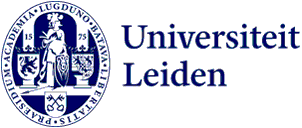Tanja Masson-Zwaan: 'Space race between US and China requires international agreements'
Various countries are planning new missions to the Moon. Not just for prestige and science, but also to extract raw materials.

The presence of water on the Moon was demonstrated for the first time in 2008 by the Indian Chandrayaan-1 mission. It observed substantial amounts of water ice deep in the Shackleton crater on the south pole of the Moon. Later, NASA established the presence of water on more easily accessible placed on both the north and south pole of the Moon. Tanja Masson-Zwaan, Assistant Professor in Air and Space Law, calls this development 'a gamechanger' in an article in Dutch newspaper Trouw. 'Every kilogram of fuel and other material that is taken up to space from Earth costs thousands of dollars. Local raw materials would give enormous cost reductions.'
More and more initiatives for international agreements about space are emerging, Masson-Zwaan observes. 'Countries cooperating in the Artemis programme are already being asked to sign the Artemis Accords. This is a series of principles about how to collaborate on and around the Moon. Simultaneously, a set of principles is also being worked on as part of the Chinese-Russian collaboration. The agreements in both groups are similar, and could ultimately lead to international legislation’.
Masson-Zwaan is concerned that in the field of space exploration, two groups are increasingly evident: one led by the US and one led by China, that is building on knowledge and experience of Russia. 'America is not legally allowed to cooperate with China on applications that can have both civil and military purposes. Space travel is part of that. So this creates a sort of enforced race, though they could achieve far more by working together. That makes good agreements even more important, because ultimately they will be standing on the Moon together.'
